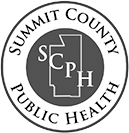What is a communicable disease?
A communicable, or infectious, disease is an illness spread by coming in contact with an infected someone or something. Bacteria, viruses, and parasites are the most common organisms causing communicable disease. These illnesses can be passed from person (or animal) to person through direct contact with body fluids, ingesting contaminated food or water, breathing contaminated air, or by the bite of an infected animal.
What diseases are reported?
View the entire list of reportable disease in Ohio here.
Who reports communicable disease?
According to the Ohio Administrative Code, section 3701-3, all laboratories are required to report all positive lab results. Physicians, and other health professionals, are required to report all positive and suspect cases. Reports are made to the local health district where the patient lives. All information reported is kept confidential.
What does the health department do when a disease is reported?
All cases are reviewed. Some reported diseases require only collection of data for statistics. Others may require a personal letter and education about the reported illness. Certain diseases require more in-depth investigation with patient contact and interview.
What information does the health department collect and why?
Specific information regarding the history of disease, such as symptom onset, treatment, and recent activity, is helpful to the Public Health Nurse and disease investigator in understanding disease impact to the patient and to the community. Analysis of collected information can aide in identifying links between disease outbreaks and sources of infection. Investigations provide ideal opportunities for public health experts to educate those infected and those at-risk for illness on disease transmission and prevention.
page updated 10-08-2025
